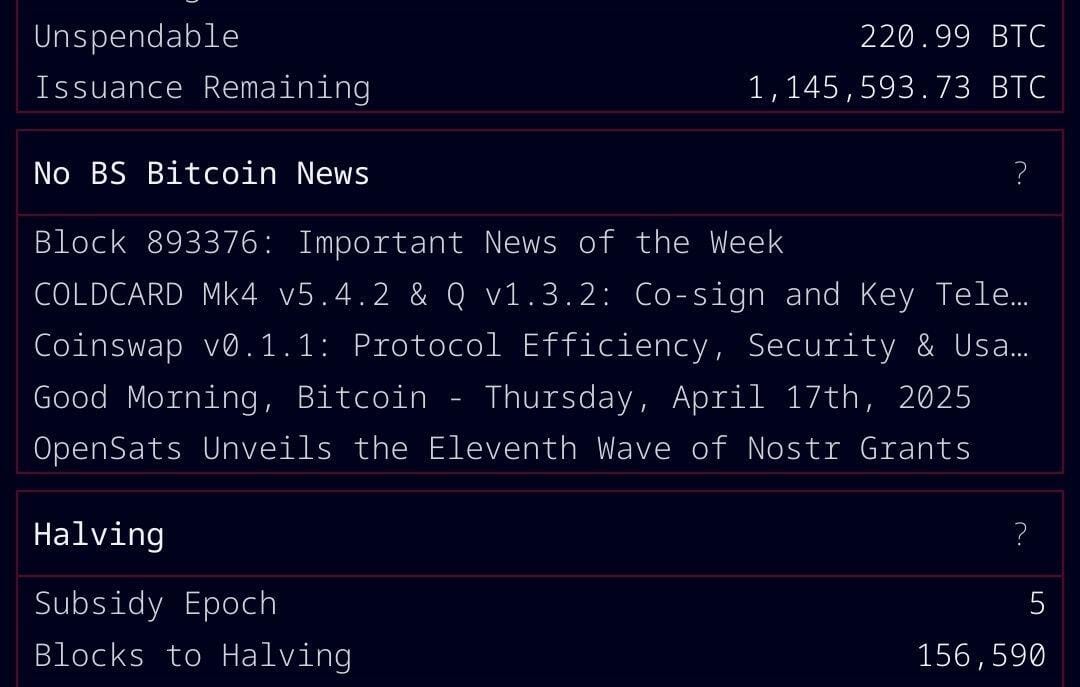-
 @ cae03c48:2a7d6671
2025-06-06 10:00:30
@ cae03c48:2a7d6671
2025-06-06 10:00:30Bitcoin Magazine
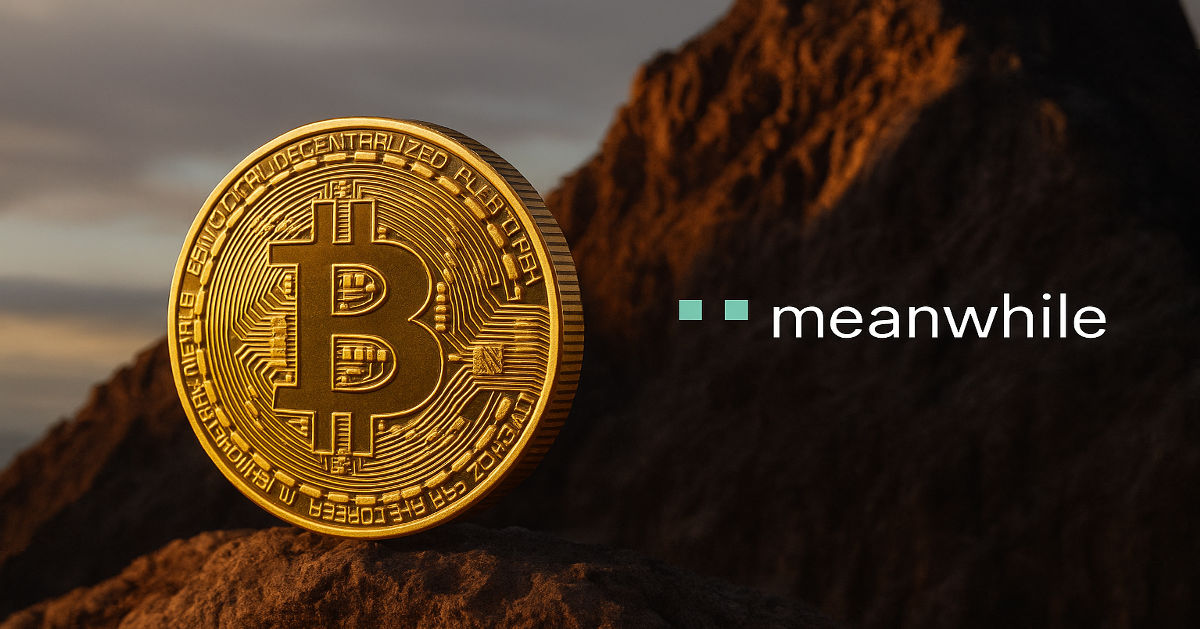
Bitcoin Life Insurer, Meanwhile, Becomes First Company to Publish Audited Financials Denominated in BitcoinMeanwhile Insurance Bitcoin (Bermuda) Limited (“Meanwhile”) announced it has become the first company in the world to release externally audited financial statements denominated entirely in Bitcoin. According to the announcement, the company reported 220.4 BTC in assets and 25.29 BTC in net income for 2024, a 300% year over year increase.
Today marks a global first & historic event for us, along with the public release of our 2024 audited financial statements, covering our 1st year of sales.
As the 1st company in the world to have Bitcoin-denominated financial statements externally audited, we are excited to…
— meanwhile | Bitcoin Life Insurance (@meanwhilelife) June 5, 2025
“We’ve just made history as the first company in the world to have Bitcoin-denominated financial statements externally audited,” said Zac Townsend, CEO of Meanwhile. “This is an important, foundational step in reimagining the financial system based on a single, global, decentralized standard outside the control of any one government.”
The financial statements were audited by Harris & Trotter LLP and its digital asset division ht.digital. Meanwhile’s financials also comply with Bermuda’s Insurance Act 1978, noting that their BTC denominated financials were approved and comply with official guidelines. The firm, fully licensed by the Bermuda Monetary Authority (BMA), operates entirely in BTC and is prohibited from liquidating Bitcoin assets except through policyholder claims, positioning it as a long term holder.
“As the first regulated Bitcoin life insurance company, we view the BTC held by Meanwhile as inherently long-term in nature—primarily held to support the Company’s insurance liabilities over decades,” Townsend added. “This makes it significantly ‘stickier’ and resistant to market pressures compared to the BTC held by other companies as part of their treasury management strategies.”
Meanwhile’s 2024 financials also revealed 23.02 BTC in net premiums and 4.35 BTC in investment income, showing that its model not only preserves Bitcoin, but earns it. The company’s reserves (also held in BTC) were reviewed and approved by Willis Towers Watson (WTW).
Meanwhile also offers a Bitcoin Whole Life insurance product that allows policyholders to save, borrow, and build legacy wealth—entirely in BTC, and has plans to expand globally in 2025.
“We are incredibly proud of today’s news as it underscores how Meanwhile is at the forefront of the next phase of the convergence between Bitcoin and institutional financial markets,” said Tia Beckmann, CFO of Meanwhile. “Now having generated net income in BTC, we have demonstrated that we are earning it through a sustainable insurance business model designed for the long term.”
This post Bitcoin Life Insurer, Meanwhile, Becomes First Company to Publish Audited Financials Denominated in Bitcoin first appeared on Bitcoin Magazine and is written by Jenna Montgomery.
-
 @ cae03c48:2a7d6671
2025-06-06 10:00:29
@ cae03c48:2a7d6671
2025-06-06 10:00:29Bitcoin Magazine

Bitcoin vs Stablecoins: Bitcoin is an Unreplicable Lifeline in Authoritarian RegimesEight years ago, I wrote a book about pitching technology. The core lesson was simple: To convince skeptics, you must show your solution’s value isn’t just better — it’s uniquely better. Years later, as I began advocating for Bitcoin’s role in humanitarian crises, this lesson resurfaced with urgency. Skeptical friends asked “Can’t stablecoins do the same?”, “What’s so unique about Bitcoin?”
The answer lies not in theory, but in the protest rallies of Abuja, the blackouts of Caracas and the underground schools that girls secretly attend in Kabul — places where 1.7 billion unbanked, 250 million battling high inflation or hyperinflation and 2.3 billion under authoritarian rule fight to survive. These stories rarely breach Western media algorithms, which act as a shadow-ban of the developing world, favoring headlines about ETFs over existential financial struggles.
It doesn’t take too deep a look into these parts of the world to discover that Bitcoin is not only vital but uniquely vital in a way stablecoins and other altcoins do not and cannot replicate. Let’s look at three nations that are adopting Bitcoin over stablecoins and why.
Nigeria: Where Sovereignty Outweighs Stability
Context: 223 million people, 95 million live on less than $1.90 a day. 23.71% inflation (April 2025), 18.3-20 million children not in school. Only 30% have access to safe drinking water.
In 2024, Nigeria faced severe economic and political upheaval, with the local currency naira crashing to a record 1,643 per dollar by August — down from 460 in early 2023. This not only eroded savings and purchasing power, it eroded trust in the government and led to widespread protests over soaring inflation and fuel costs. These protests were triggered by widespread anger at government economic mismanagement and policies that failed to halt the economic slide.
On occasion a stable currency, the naira’s collapse left families and businesses struggling to afford imports into a dollar-dependent economy. Public frustration intensified and with it, political instability. This volatile climate of currency devaluation, restricted financial access and social unrest set the stage for Nigerians to turn to alternative financial systems like cryptocurrencies, seeking solutions to safeguard their wealth amid a crumbling economic framework.
But the government wasn’t about to make that easy for its citizens. Nigeria’s government restricted stablecoin. “Illicit flows,” aka money laundering, was often used as the government’s official reason for anti-stablecoin actions. More likely the Nigerian government took action because they viewed stablecoins as undermining its monetary policy by enabling unregulated capital flows and currency substitution, reducing its central bank’s control over money supply and exchange rates.
No doubt, bitcoin can be seen as undermining monetary policy in some similar ways, the difference being, Nigeria’s government was not able to curtail bitcoin’s usage as effectively due to its decentralized nature.
The specific actions Nigeria’s government took came in three forms:
- Banking Restrictions and U.S. dollar supply shortages had the effect of limiting fiat on-ramps/off-ramps for stablecoins like USDT, which required KYC-compliant exchanges. P2P bitcoin trading soared after the restrictions, as users bypassed banking controls using private wallets and DEXs.
- Regulatory Crackdowns: Nigeria’s government took specific legal action to sue unlicensed USDT traders. Nigerian authorities then launched a broader attack, accusing crypto-trading platform Binance of “exploitation, devaluation of the naira and money laundering.”
- Premiums and Volatility: Regulatory pressures and FX shortages likely inflated premiums, making them less practical than bitcoin, which operates without centralized dependencies.
All three measures — banking restrictions, regulatory crackdowns and premiums/volatility — impacted bitcoin a lot less than it impacted stablecoins. Stablecoins’ reliance on centralized issuers, banking rails and KYC-compliant exchanges made them vulnerable to government actions, as we saw when USDT trading was disrupted. By contrast, Bitcoin’s decentralized, permissionless nature enabled Nigerians to bypass restrictions via P2P platforms and private wallets, sustaining its adoption.
Afghanistan: How Bitcoin Was a Financial Lifeline After the Taliban Takeover
Context: Taliban rule, most women are unbanked, Afghanistan’s currency devalued 50% between 2021 and 2022. Eighty-five percent live on less than $1 a day, 80% of school-aged Afghan girls and young women are out of school.
When the Taliban seized control in August 2021, Afghanistan’s banking system collapsed under sanctions, leaving citizens — especially women — with few options. Traditional remittance networks like Hawala charged exorbitant fees (5-20%), while frozen central bank reserves made dollar access nearly impossible. In this vacuum, bitcoin emerged as a critical tool for survival. In 2021, Bitcoin Magazine previously reported how women were safeguarding Bitcoin seed phrases as a last line of financial defense. After the Taliban banned crypto in 2022, peer-to-peer bitcoin trading persisted underground.
Why Bitcoin Outperformed Stablecoins in Crisis
Stablecoins, reliant on centralized issuers and dollar-backed banking rails, faltered under Afghanistan’s unique constraints. U.S. sanctions froze $7 billion in central bank funds, which cut off the dollar liquidity needed for stablecoins like USDT. While Forbes India noted isolated cases of stablecoin use for salaries, most Afghans found them unusable. Meanwhile, sanctions blocked fiat conversions and the Taliban’s November 2021 foreign currency ban further restricted access. Bitcoin, by contrast, once again thrived precisely because of its decentralized design: no intermediaries to freeze transactions, no KYC to expose users and a global network that resisted shutdowns. Where stablecoins were hobbled by their ties to traditional finance, Bitcoin enabled direct, pseudonymous transfers.Venezuela: Scarcity Trumps “Stability”
Context: The Venezuelan bolívar has lost 99.99% value since 2018; 76% of Venezuelans live on $1.90/day. Over 7.7 million Venezuelans have fled the country since 2014 due to economic collapse and political instability. Over 10% of children under five in Venezuela suffer from stunting due to chronic malnutrition.
Carlos, a Caracas mechanic, measures his life in bolívars — or rather, the absence of them. Since 2018, Venezuela’s currency has shed 99.99% of its value, Carlos explains, Carlos is an example of many Venezuelans who used bitcoin, not stablecoins, to preserve wealth as the bolívar continued to lose value. The government introduced strict capital controls into the market so that even if you somehow manage to earn USD, you can’t get the money transferred to your bank account.
Bitcoin provides a financial lifeline for people like Carlos, unlike stablecoins that are pegged to a USD that itself lost 18% in purchasing power since 2020.
That’s right: People like Carlos, schooled in the hard knocks of currency hyper-debasement, realized earlier than many in the West that stablecoins are not really stable.
Stablecoins by their name present the appearance of being a safe harbor, becau
-
 @ bfeb2ffe:09089d06
2025-06-06 09:59:15
@ bfeb2ffe:09089d06
2025-06-06 09:59:15Alpha Omega Pack Factory offers reliable information on sourcing the best aluminium food container manufacturers. We provide insights into key qualities to consider, such as product durability, food safety standards, and manufacturing expertise. Our professional guidance helps businesses choose trusted suppliers who deliver high-quality aluminium containers tailored for various food packaging needs. Trust Alpha Omega Pack Factory to connect you with reputable aluminium food container manufacturers committed to excellence and timely delivery.
-
 @ 5c9e5ee4:72f1325b
2025-06-06 09:55:17
@ 5c9e5ee4:72f1325b
2025-06-06 09:55:17Bitcoin, with its precisely engineered monetary policy, presents a compelling alternative to traditional financial systems. Beyond its technological innovation, its design reveals a potential blueprint for a future where global economies might operate on a fixed, sound money standard, free from the inflationary policies that have long characterized fiat currencies.
A core tenet of Bitcoin's appeal lies in its unwavering scarcity. By early 2030, an estimated over 90% of its total 21 million coins will have been mined and released into circulation. This immutable supply cap, hard-coded into its protocol, provides a stark contrast to national currencies whose supplies can be expanded at will by central banks. While the very last fractions of Bitcoin will be mined around 2140, the effective supply is established far sooner.
Key to Bitcoin's functionality at scale is its remarkable divisibility. Each Bitcoin is broken down into 100 million smaller units called "satoshis." This granular structure ensures that even if a single Bitcoin were to achieve a multi-million dollar valuation, the humble satoshi would remain a practical and relatable unit for everyday transactions, much like a cent in everyday commerce.
Consider the transformative implications of two hypothetical Bitcoin price points:
-
The $1.1 Million Bitcoin: A New Standard for the USD. If Bitcoin's current circulating supply were to absorb the entirety of the US M2 money supply—approximately $21.86 trillion as of April 2025—the price of one Bitcoin would reach roughly $1.1 million. At this valuation, a single satoshi would equate to about 1.1 cents. This scenario suggests Bitcoin's market capitalization directly challenging, and potentially replacing or serving as a hard peg for, the broad US dollar supply. Such a shift would fundamentally constrain the ability of the Federal Reserve to engage in inflationary practices.
-
The $5.3 Million Bitcoin: The Backbone of World GDP. Pushing the hypothetical further, if Bitcoin's market cap were to cover the entire world's nominal Gross Domestic Product—valued at $106.172 trillion for 2023—the price of one Bitcoin would soar to an estimated $5.3 million.
These figures underscore a powerful, almost poetic, vision for Bitcoin's role in the global economy. The striking numerical coincidences—the 21 million coin cap, the potential for a $21 trillion market cap (roughly aligning with M2), and the corresponding satoshi-to-cent parity—suggest a profound foresight in Satoshi Nakamoto's original design. This design, proponents argue, aims to facilitate a future where the global economy operates on a sound money standard, liberated from what some describe as the "nasty inflation tricks" employed by central banks to devalue currencies.
Crucially, this shift would present significant challenges, particularly for larger economies perceived as "artificially inflated" by years of expansionary monetary policies. These nations, accustomed to managing economic cycles through money printing and debt monetization, would face:
- Loss of Monetary Sovereignty: The inability to inflate their way out of debt or stimulate the economy through currency debasement.
- Forced Fiscal Discipline: Governments would be compelled to balance budgets through taxation or genuine borrowing, abandoning reliance on the printing press.
- Deflationary Pressures: A fixed money supply in a growing economy could lead to an increase in purchasing power over time (deflation), making existing debts harder to service in real terms.
To illustrate this profound re-allocation of global value, consider how current national GDPs would theoretically translate into Bitcoin holdings in such a scenario, assuming the entire world's economic output was denominated in the existing Bitcoin supply:
Hypothetical Bitcoin Allocation by Country (World GDP Covered)
(Assumes World GDP ~$106.172 Trillion USD, Bitcoin Circulating Supply ~19.87 Million BTC, leading to ~$5,343,834.93 per BTC)
| Country | 2023 Nominal GDP (in Billions USD) | % of World GDP (approx.) | Equivalent Bitcoin Amount (in BTC) | | :------------------ | :--------------------------------- | :----------------------- | :--------------------------------- | | Major Economies | | | | | United States | $27,970 | 26.34% | 5,234,000 | | China | $17,650 | 16.62% | 3,303,000 | | Germany | $4,460 | 4.20% | 835,000 | | Japan | $4,290 | 4.04% | 803,000 | | India | $3,730 | 3.51% | 698,000 | | United Kingdom | $3,330 | 3.14% | 623,000 | | France | $3,050 | 2.87% | 571,000 | | Italy | $2,190 | 2.06% | 410,000 | | Brazil | $2,170 | 2.04% | 406,000 | | Canada | $2,120 | 1.99% | 397,000 | | Emerging Markets & Smaller Economies | | | | | Saudi Arabia | $1,070 | 1.01% | 200,000 | | Poland | $810 | 0.76% | 152,000 | | Switzerland | $885 | 0.83% | 166,000 | | Sweden | $585 | 0.55% | 109,000 | | Nigeria | $363 | 0.34% | 68,000 | | Egypt | $396 | 0.37% | 74,000 | | South Africa | $381 | 0.36% | 71,000 | | Argentina | $646 | 0.61% | 121,000 | | Vietnam | $430 | 0.40% | 80,000 | | Colombia | $364 | 0.34% | 68,000 | | Malaysia | $400 | 0.38% | 75,000 | | Philippines | $437 | 0.41% | 82,000 | | New Zealand | $253 | 0.24% | 47,000 | | Denmark | $404 | 0.38% | 75,000 |
(Source for 2023 Nominal GDP data: International Monetary Fund (IMF), World Economic Outlook Database, October 2023 & various country-specific sources for confirmation.)
This table vividly demonstrates how a Bitcoin-backed global economy would concentrate immense value into relatively small amounts of Bitcoin. For instance, the United States, representing over a quarter of global GDP, would account for just over 5 million of the total 19.87 million Bitcoins in this theoretical future. This underscores the transformative potential of such a shift, forcing nations—especially those accustomed to expansive fiscal policies—to adapt to a new era of immutable monetary constraints.
While Bitcoin's supply schedule marches steadily towards its fixed limit, its adoption by individuals, businesses, and governments worldwide is a separate journey. Currently, global cryptocurrency ownership is estimated at around 6.8% of the world population, placing Bitcoin firmly in the early stages of the "Diffusion of Innovations" S-curve. However, the inherent scarcity created by Bitcoin's pre-programmed supply is precisely what many believe will drive its value higher as global adoption continues to accelerate in the decades to come.
Ultimately, Bitcoin is more than just a digital asset; it embodies a potential revolution in how money functions globally, offering a path towards a fundamentally transparent, predictable, and finite monetary system that could reshape the very foundations of capitalism.
-
-
 @ 38c2d651:f89fed81
2025-06-06 09:18:09
@ 38c2d651:f89fed81
2025-06-06 09:18:09Are dental loan options available without a credit check? At TLC, we provide clear information on how some lenders offer dental loans tailored for those concerned about credit history. These loans may have specific terms and eligibility criteria that differ from traditional financing. Understanding the available options helps you make an informed decision for your dental care needs. Contact TLC to learn more about dental loan possibilities and find a suitable plan that fits your circumstances.
-
 @ 7f6db517:a4931eda
2025-06-06 09:01:35
@ 7f6db517:a4931eda
2025-06-06 09:01:35
People forget Bear Stearns failed March 2008 - months of denial followed before the public realized how bad the situation was under the surface.
Similar happening now but much larger scale. They did not fix fundamental issues after 2008 - everything is more fragile.
The Fed preemptively bailed out every bank with their BTFP program and First Republic Bank still failed. The second largest bank failure in history.
There will be more failures. There will be more bailouts. Depositors will be "protected" by socializing losses across everyone.
Our President and mainstream financial pundits are currently pretending the banking crisis is over while most banks remain insolvent. There are going to be many more bank failures as this ponzi system unravels.
Unlike 2008, we have the ability to opt out of these broken and corrupt institutions by using bitcoin. Bitcoin held in self custody is unique in its lack of counterparty risk - you do not have to trust a bank or other centralized entity to hold it for you. Bitcoin is also incredibly difficult to change by design since it is not controlled by an individual, company, or government - the supply of dollars will inevitably be inflated to bailout these failing banks but bitcoin supply will remain unchanged. I do not need to convince you that bitcoin provides value - these next few years will convince millions.
If you found this post helpful support my work with bitcoin.

-
 @ fe820c8e:d2d76f04
2025-06-06 09:09:42
@ fe820c8e:d2d76f04
2025-06-06 09:09:42Nostr Quizzzz
-
Was ist Nostr?
-
[( )] Ein zentralisierter Social-Media-Dienst
- [(X)] Ein dezentralisiertes Protokoll für soziale Netzwerke
- [( )] Ein E-Mail-Anbieter
-
[( )] Ein Open-Source-Betriebssystem
-
Welche der folgenden Punkte sind typische Merkmale von Nostr? (Mehrfachauswahl möglich)
-
[[X]] Nutzung von Public/Private-Key-Paaren für Identität
- [[ ]] Ein zentraler Server speichert alle Profile
- [[ ]] Keine Möglichkeit zur Moderation von Inhalten
- [[X]] Jeder kann ohne Erlaubnis eines Providers einen Relay betreiben
- [[ ]] Komplett verschlüsselte Nachrichten (Ende-zu-Ende) als Standard
Umfragen
Wie findet ihr Nostr?
- [(1)] sehr gut
- [(2)] gut
- [(3)] ok
- [(4)] befriedigend
- [(5)] würde ich nicht nutzen ...
-
-
 @ 7f6db517:a4931eda
2025-06-06 09:01:35
@ 7f6db517:a4931eda
2025-06-06 09:01:35

"Privacy is necessary for an open society in the electronic age. Privacy is not secrecy. A private matter is something one doesn't want the whole world to know, but a secret matter is something one doesn't want anybody to know. Privacy is the power to selectively reveal oneself to the world." - Eric Hughes, A Cypherpunk's Manifesto, 1993
Privacy is essential to freedom. Without privacy, individuals are unable to make choices free from surveillance and control. Lack of privacy leads to loss of autonomy. When individuals are constantly monitored it limits our ability to express ourselves and take risks. Any decisions we make can result in negative repercussions from those who surveil us. Without the freedom to make choices, individuals cannot truly be free.
Freedom is essential to acquiring and preserving wealth. When individuals are not free to make choices, restrictions and limitations prevent us from economic opportunities. If we are somehow able to acquire wealth in such an environment, lack of freedom can result in direct asset seizure by governments or other malicious entities. At scale, when freedom is compromised, it leads to widespread economic stagnation and poverty. Protecting freedom is essential to economic prosperity.
The connection between privacy, freedom, and wealth is critical. Without privacy, individuals lose the freedom to make choices free from surveillance and control. While lack of freedom prevents individuals from pursuing economic opportunities and makes wealth preservation nearly impossible. No Privacy? No Freedom. No Freedom? No Wealth.
Rights are not granted. They are taken and defended. Rights are often misunderstood as permission to do something by those holding power. However, if someone can give you something, they can inherently take it from you at will. People throughout history have necessarily fought for basic rights, including privacy and freedom. These rights were not given by those in power, but rather demanded and won through struggle. Even after these rights are won, they must be continually defended to ensure that they are not taken away. Rights are not granted - they are earned through struggle and defended through sacrifice.
If you found this post helpful support my work with bitcoin.

-
 @ 7f6db517:a4931eda
2025-06-06 09:01:34
@ 7f6db517:a4931eda
2025-06-06 09:01:34
Nostr is an open communication protocol that can be used to send messages across a distributed set of relays in a censorship resistant and robust way.
If you missed my nostr introduction post you can find it here. My nostr account can be found here.
We are nearly at the point that if something interesting is posted on a centralized social platform it will usually be posted by someone to nostr.
We are nearly at the point that if something interesting is posted exclusively to nostr it is cross posted by someone to various centralized social platforms.
We are nearly at the point that you can recommend a cross platform app that users can install and easily onboard without additional guides or resources.
As companies continue to build walls around their centralized platforms nostr posts will be the easiest to cross reference and verify - as companies continue to censor their users nostr is the best censorship resistant alternative - gradually then suddenly nostr will become the standard. 🫡
Current Nostr Stats
If you found this post helpful support my work with bitcoin.

-
 @ dfa02707:41ca50e3
2025-06-06 09:01:33
@ dfa02707:41ca50e3
2025-06-06 09:01:33Contribute to keep No Bullshit Bitcoin news going.
- The latest firmware updates for COLDCARD devices introduce two major features: COLDCARD Co-sign (CCC) and Key Teleport between two COLDCARD Q devices using QR codes and/or NFC with a website.

What's new
- COLDCARD Co-Sign: When CCC is enabled, a second seed called the Spending Policy Key (Key C) is added to the device. This seed works with the device's Main Seed and one or more additional XPUBs (Backup Keys) to form 2-of-N multisig wallets.
- The spending policy functions like a hardware security module (HSM), enforcing rules such as magnitude and velocity limits, address whitelisting, and 2FA authentication to protect funds while maintaining flexibility and control, and is enforced each time the Spending Policy Key is used for signing.
- When spending conditions are met, the COLDCARD signs the partially signed bitcoin transaction (PSBT) with the Main Seed and Spending Policy Key for fund access. Once configured, the Spending Policy Key is required to view or change the policy, and violations are denied without explanation.
"You can override the spending policy at any time by signing with either a Backup Key and the Main Seed or two Backup Keys, depending on the number of keys (N) in the multisig."
-
A step-by-step guide for setting up CCC is available here.
-
Key Teleport for Q devices allows users to securely transfer sensitive data such as seed phrases (words, xprv), secure notes and passwords, and PSBTs for multisig. It uses QR codes or NFC, along with a helper website, to ensure reliable transmission, keeping your sensitive data protected throughout the process.
- For more technical details, see the protocol spec.
"After you sign a multisig PSBT, you have option to “Key Teleport” the PSBT file to any one of the other signers in the wallet. We already have a shared pubkey with them, so the process is simple and does not require any action on their part in advance. Plus, starting in this firmware release, COLDCARD can finalize multisig transactions, so the last signer can publish the signed transaction via PushTX (NFC tap) to get it on the blockchain directly."
- Multisig transactions are finalized when sufficiently signed. It streamlines the use of PushTX with multisig wallets.
- Signing artifacts re-export to various media. Users are now provided with the capability to export signing products, like transactions or PSBTs, to alternative media rather than the original source. For example, if a PSBT is received through a QR code, it can be signed and saved onto an SD card if needed.
- Multisig export files are signed now. Public keys are encoded as P2PKH address for all multisg signature exports. Learn more about it here.
- NFC export usability upgrade: NFC keeps exporting until CANCEL/X is pressed.
- Added Bitcoin Safe option to Export Wallet.
- 10% performance improvement in USB upload speed for large files.
- Q: Always choose the biggest possible display size for QR.
Fixes
- Do not allow change Main PIN to same value already used as Trick PIN, even if Trick PIN is hidden.
- Fix stuck progress bar under
Receiving...after a USB communications failure. - Showing derivation path in Address Explorer for root key (m) showed double slash (//).
- Can restore developer backup with custom password other than 12 words format.
- Virtual Disk auto mode ignores already signed PSBTs (with “-signed” in file name).
- Virtual Disk auto mode stuck on “Reading…” screen sometimes.
- Finalization of foreign inputs from partial signatures. Thanks Christian Uebber!
- Temporary seed from COLDCARD backup failed to load stored multisig wallets.
Destroy Seedalso removes all Trick PINs from SE2.Lock Down Seedrequires pressing confirm key (4) to execute.- Q only: Only BBQr is allowed to export Coldcard, Core, and pretty descriptor.
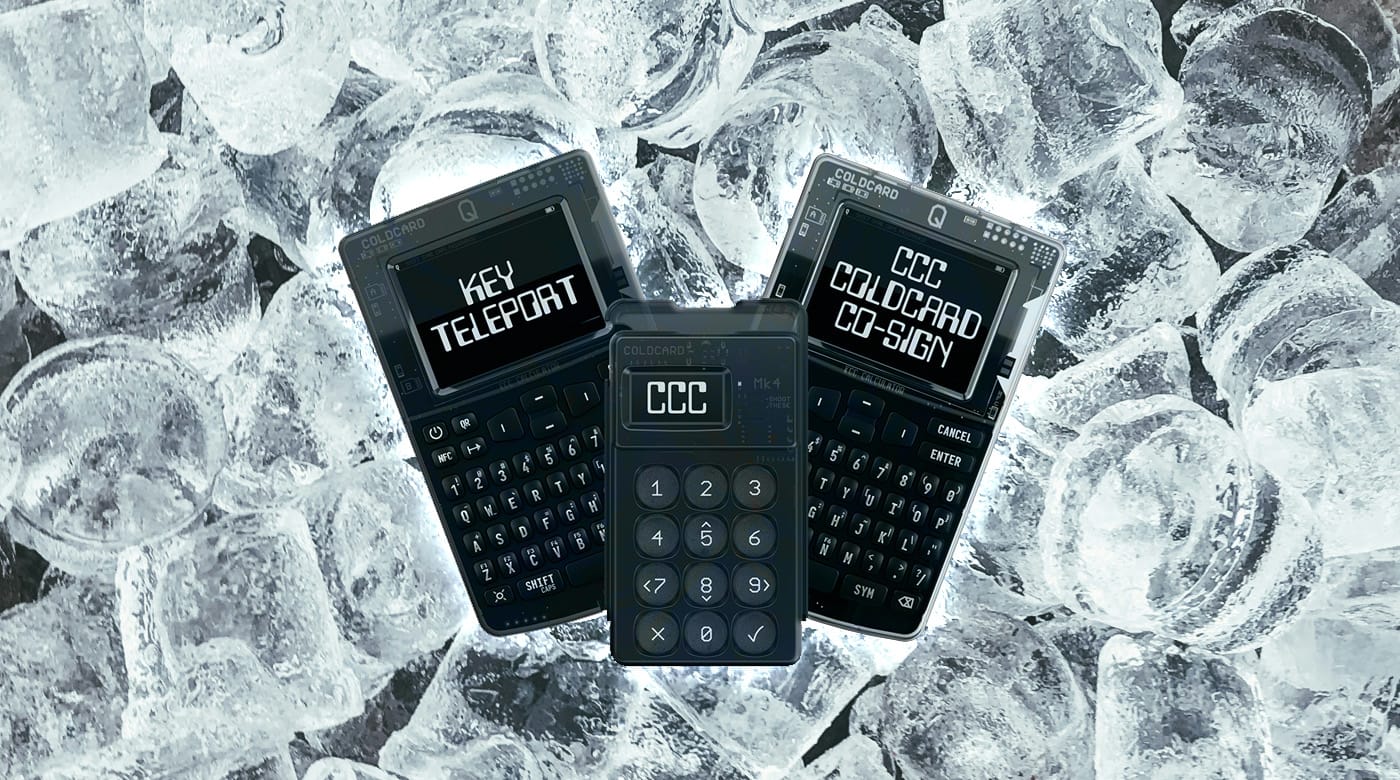
-
 @ dfa02707:41ca50e3
2025-06-06 09:01:31
@ dfa02707:41ca50e3
2025-06-06 09:01:31Headlines
- Spiral renews support for Dan Gould and Joschisan. The organization has renewed support for Dan Gould, who is developing the Payjoin Dev Kit (PDK), and Joschisan, a Fedimint developer focused on simplifying federations.
- Metaplanet buys another 145 BTC. The Tokyo-listed company has purchased an additional 145 BTC for $13.6 million. Their total bitcoin holdings now stand at 5,000 coins, worth around $428.1 million.
- Semler Scientific has increased its bitcoin holdings to 3,303 BTC. The company acquired an additional 111 BTC at an average price of $90,124. The purchase was funded through proceeds from an at-the-market offering and cash reserves, as stated in a press release.
- The Virtual Asset Service Providers (VASP) Bill 2025 introduced in Kenya. The new legislation aims to establish a comprehensive legal framework for licensing, regulating, and supervising virtual asset service providers (VASPs), with strict penalties for non-compliant entities.
- Russian government to launch a cryptocurrency exchange. The country's Ministry of Finance and Central Bank announced plans to establish a trading platform for "highly qualified investors" that "will legalize crypto assets and bring crypto operations out of the shadows."
- All virtual asset service providers expect to be fully compliant with the Travel Rule by the end of 2025. A survey by financial surveillance specialist Notabene reveals that 90% of virtual asset service providers (VASPs) expect full Travel Rule compliance by mid-2025, with all aiming for compliance by year-end. The survey also shows a significant rise in VASPs blocking withdrawals until beneficiary information is confirmed, increasing from 2.9% in 2024 to 15.4% now. Additionally, about 20% of VASPs return deposits if originator data is missing.
- UN claims Bitcoin mining is a "powerful tool" for money laundering. The Rage's analysis suggests that the recent United Nations Office on Drugs and Crime report on crime in South-East Asia makes little sense and hints at the potential introduction of Anti-Money Laundering (AML) measures at the mining level.
- Riot Platforms has obtained a $100 million credit facility from Coinbase Credit, using bitcoin as collateral for short-term funding to support its expansion. The firm's CEO, Jason Les, stated that this facility is crucial for diversifying financing sources and driving long-term stockholder value through strategic growth initiatives.
- Bitdeer raises $179M in loans and equity amid Bitcoin chip push. The Miner Mag reports that Bitdeer entered into a loan agreement with its affiliate Matrixport for up to $200 million in April, as disclosed in its annual report filed on Monday.
- Federal Reserve retracts guidance discouraging banks from engaging in 'crypto.' The U.S. Federal Reserve withdrew guidance that discouraged banks from crypto and stablecoin activities, as announced by its Board of Governors on Thursday. This includes rescinding a 2022 supervisory letter requiring prior notification of crypto activities and 2023 stablecoin requirements.
"As a result, the Board will no longer expect banks to provide notification and will instead monitor banks' crypto-asset activities through the normal supervisory process," reads the FED statement.
- UAE-based Islamic bank ruya launches Shari’ah-compliant bitcoin investing. The bank has become the world’s first Islamic bank to provide direct access to virtual asset investments, including Bitcoin, via its mobile app, per Bitcoin Magazine.
- U.S. 'crypto' scam losses amounted to $9.3B in 2024. The US The Federal Bureau of Investigation (FBI) has reported $9.3 billion losses in cryptocurrency-related scams in 2024, noting a troubling trend of scams targeting older Americans, which accounted for over $2.8 billion of those losses.

Source: FBI.
- North Korean hackers establish fake companies to target 'crypto' developers. Silent Push researchers reported that hackers linked to the Lazarus Group created three shell companies, two of which are based in the U.S., with the objective of spreading malware through deceptive job interview scams aimed at individuals seeking jobs in cryptocurrency companies.
- Citrea deployed its Clementine Bridge on the Bitcoin testnet. The bridge utilizes the BitVM2 programming language to inherit validity from Bitcoin, allegedly providing "the safest and most trust-minimized way to use BTC in decentralized finance."
- Hesperides University offers a Master’s degree in Bitcoin. Bitcoin Magazine reports the launch of the first-ever Spanish-language Master’s program dedicated exclusively to Bitcoin. Starting April 28, 2025, this fully online program will equip professionals with technical, economic, legal, and philosophical skills to excel in the Bitcoin era.
- BTC in D.C. event is set to take place on September 30 - October 1 in Washington, D.C. Learn more about this initiative here.
Use the tools
- Bitcoin Keeper just got a new look. Version 2.2.0 of the mobile multisig app brought a new branding design, along with a Keeper Private tier, testnet support, ability to import and export BIP-329 labels, and the option to use a Server Key with multiple users.
- Earlier this month the project also announced Keeper Learn service, offering clear and guided Bitcoin learning sessions for both groups and individuals.
- Keeper Desktop v0.2.2, a companion desktop app for Bitcoin Keeper mobile app, received a renewed branding update, too.

The evolution of Bitcoin Keeper logo. Source: BitHyve blog.
- Blockstream Green Desktop v2.0.25 updates GDK to v0.75.1 and fixes amount parsing issues when switching from fiat denomination to Liquid asset.
- Lightning Loop v0.31.0-beta enhances the
loop listswapscommand by improving the ability to filter the response. - Lightning-kmp v1.10.0, an implementation of the Lightning Network in Kotlin, is now available.
- LND v0.19.0-beta.rc3, the latest beta release candidate of LND is now ready for testing.
- ZEUS v0.11.0-alpha2 is now available for testing, too. It's nuts.
- JoinMarket Fidelity Bond Simulator helps potential JoinMarket makers evaluate their competitive position in the market based on fidelity bonds.
- UTXOscope is a text-only Bitcoin blockchain analysis tool that visualizes price dynamics using only on-chain data. The
-
 @ dfa02707:41ca50e3
2025-06-06 01:01:53
@ dfa02707:41ca50e3
2025-06-06 01:01:53Contribute to keep No Bullshit Bitcoin news going.
- The latest firmware updates for COLDCARD devices introduce two major features: COLDCARD Co-sign (CCC) and Key Teleport between two COLDCARD Q devices using QR codes and/or NFC with a website.

What's new
- COLDCARD Co-Sign: When CCC is enabled, a second seed called the Spending Policy Key (Key C) is added to the device. This seed works with the device's Main Seed and one or more additional XPUBs (Backup Keys) to form 2-of-N multisig wallets.
- The spending policy functions like a hardware security module (HSM), enforcing rules such as magnitude and velocity limits, address whitelisting, and 2FA authentication to protect funds while maintaining flexibility and control, and is enforced each time the Spending Policy Key is used for signing.
- When spending conditions are met, the COLDCARD signs the partially signed bitcoin transaction (PSBT) with the Main Seed and Spending Policy Key for fund access. Once configured, the Spending Policy Key is required to view or change the policy, and violations are denied without explanation.
"You can override the spending policy at any time by signing with either a Backup Key and the Main Seed or two Backup Keys, depending on the number of keys (N) in the multisig."
-
A step-by-step guide for setting up CCC is available here.
-
Key Teleport for Q devices allows users to securely transfer sensitive data such as seed phrases (words, xprv), secure notes and passwords, and PSBTs for multisig. It uses QR codes or NFC, along with a helper website, to ensure reliable transmission, keeping your sensitive data protected throughout the process.
- For more technical details, see the protocol spec.
"After you sign a multisig PSBT, you have option to “Key Teleport” the PSBT file to any one of the other signers in the wallet. We already have a shared pubkey with them, so the process is simple and does not require any action on their part in advance. Plus, starting in this firmware release, COLDCARD can finalize multisig transactions, so the last signer can publish the signed transaction via PushTX (NFC tap) to get it on the blockchain directly."
- Multisig transactions are finalized when sufficiently signed. It streamlines the use of PushTX with multisig wallets.
- Signing artifacts re-export to various media. Users are now provided with the capability to export signing products, like transactions or PSBTs, to alternative media rather than the original source. For example, if a PSBT is received through a QR code, it can be signed and saved onto an SD card if needed.
- Multisig export files are signed now. Public keys are encoded as P2PKH address for all multisg signature exports. Learn more about it here.
- NFC export usability upgrade: NFC keeps exporting until CANCEL/X is pressed.
- Added Bitcoin Safe option to Export Wallet.
- 10% performance improvement in USB upload speed for large files.
- Q: Always choose the biggest possible display size for QR.
Fixes
- Do not allow change Main PIN to same value already used as Trick PIN, even if Trick PIN is hidden.
- Fix stuck progress bar under
Receiving...after a USB communications failure. - Showing derivation path in Address Explorer for root key (m) showed double slash (//).
- Can restore developer backup with custom password other than 12 words format.
- Virtual Disk auto mode ignores already signed PSBTs (with “-signed” in file name).
- Virtual Disk auto mode stuck on “Reading…” screen sometimes.
- Finalization of foreign inputs from partial signatures. Thanks Christian Uebber!
- Temporary seed from COLDCARD backup failed to load stored multisig wallets.
Destroy Seedalso removes all Trick PINs from SE2.Lock Down Seedrequires pressing confirm key (4) to execute.- Q only: Only BBQr is allowed to export Coldcard, Core, and pretty descriptor.

-
 @ 34cfc4a2:0500c157
2025-06-06 08:49:05
@ 34cfc4a2:0500c157
2025-06-06 08:49:05A standard handbag strap typically ranges from 18 to 24 inches, providing a comfortable fit for shoulder wear. At Buckle It Up Store, we emphasize selecting the right handbag strap length based on your style and daily use. Adjustable options offer greater versatility, especially for crossbody or over-the-shoulder designs. Understanding strap dimensions helps ensure both functionality and comfort. This guide aims to assist customers in making informed choices for the ideal handbag strap fit that suits their lifestyle and fashion preferences.
-
 @ dfa02707:41ca50e3
2025-06-06 09:01:30
@ dfa02707:41ca50e3
2025-06-06 09:01:30Contribute to keep No Bullshit Bitcoin news going.
- RoboSats v0.7.7-alpha is now available!
NOTE: "This version of clients is not compatible with older versions of coordinators. Coordinators must upgrade first, make sure you don't upgrade your client while this is marked as pre-release."
- This version brings a new and improved coordinators view with reviews signed both by the robot and the coordinator, adds market price sources in coordinator profiles, shows a correct warning for canceling non-taken orders after a payment attempt, adds Uzbek sum currency, and includes package library updates for coordinators.

Source: RoboSats.
- siggy47 is writing daily RoboSats activity reviews on stacker.news. Check them out here.
- Stay up-to-date with RoboSats on Nostr.
What's new
- New coordinators view (see the picture above).
- Available coordinator reviews signed by both the robot and the coordinator.
- Coordinators now display market price sources in their profiles.

Source: RoboSats.
- Fix for wrong message on cancel button when taking an order. Users are now warned if they try to cancel a non taken order after a payment attempt.
- Uzbek sum currency now available.
- For coordinators: library updates.
- Add docker frontend (#1861).
- Add order review token (#1869).
- Add UZS migration (#1875).
- Fixed tests review (#1878).
- Nostr pubkey for Robot (#1887).
New contributors

Full Changelog: v0.7.6-alpha...v0.7.7-alpha
-
 @ dfa02707:41ca50e3
2025-06-06 09:01:28
@ dfa02707:41ca50e3
2025-06-06 09:01:28Contribute to keep No Bullshit Bitcoin news going.
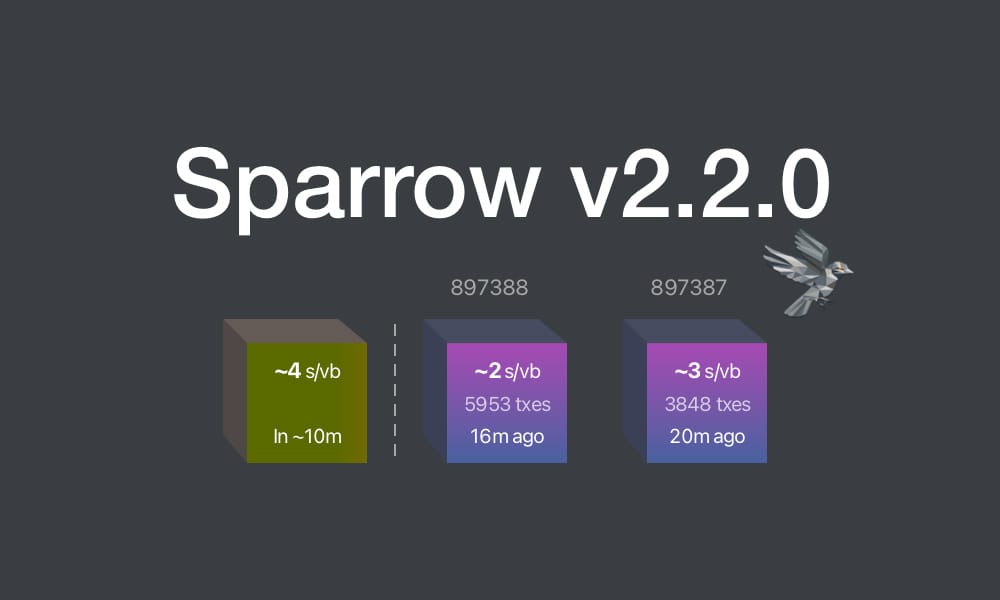
This update brings key enhancements for clarity and usability:
- Recent Blocks View: Added to the Send tab and inspired by Mempool's visualization, it displays the last 2 blocks and the estimated next block to help choose fee rates.
- Camera System Overhaul: Features a new library for higher resolution detection and mouse-scroll zoom support when available.
- Vector-Based Images: All app images are now vectorized and theme-aware, enhancing contrast, especially in dark mode.
- Tor & P2A Updates: Upgraded internal Tor and improved support for pay-to-anchor (P2A) outputs.
- Linux Package Rename: For Linux users, Sparrow has been renamed to sparrowwallet (or sparrowserver); in some cases, the original sparrow package may need manual removal.
- Additional updates include showing total payments in multi-payment transaction diagrams, better handling of long labels, and other UI enhancements.
- Sparrow v2.2.1 is a bug fix release that addresses missing UUID issue when starting Tor on recent macOS versions, icons for external sources in Settings and Recent Blocks view, repackaged
.debinstalls to use older gzip instead of zstd compression, and removed display of median fee rate where fee rates source is set to Server.
Learn how to get started with Sparrow wallet:
Release notes (v2.2.0)
- Added Recent Blocks view to Send tab.
- Converted all bitmapped images to theme aware SVG format for all wallet models and dialogs.
- Support send and display of pay to anchor (P2A) outputs.
- Renamed
sparrowpackage tosparrowwalletandsparrowserveron Linux. - Switched camera library to openpnp-capture.
- Support FHD (1920 x 1080) and UHD4k (3840 x 2160) capture resolutions.
- Support camera zoom with mouse scroll where possible.
- In the Download Verifier, prefer verifying the dropped file over the default file where the file is not in the manifest.
- Show a warning (with an option to disable the check) when importing a wallet with a derivation path matching another script type.
- In Cormorant, avoid calling the
listwalletdirRPC on initialization due to a potentially slow response on Windows. - Avoid server address resolution for public servers.
- Assume server address is non local for resolution failures where a proxy is configured.
- Added a tooltip to indicate truncated labels in table cells.
- Dynamically truncate input and output labels in the tree on a transaction tab, and add tooltips if necessary.
- Improved tooltips for wallet tabs and transaction diagrams with long labels.
- Show the address where available on input and output tooltips in transaction tab tree.
- Show the total amount sent in payments in the transaction diagram when constructing multiple payment transactions.
- Reset preferred table column widths on adjustment to improve handling after window resizing.
- Added accessible text to improve screen reader navigation on seed entry.
- Made Wallet Summary table grow horizontally with dialog sizing.
- Reduced tooltip show delay to 200ms.
- Show transaction diagram fee percentage as less than 0.01% rather than 0.00%.
- Optimized and reduced Electrum server RPC calls.
- Upgraded Bouncy Castle, PGPainless and Logback libraries.
- Upgraded internal Tor to v0.4.8.16.
- Bug fix: Fixed issue with random ordering of keystore origins on labels import.
- Bug fix: Fixed non-zero account script type detection when signing a message on Trezor devices.
- Bug fix: Fixed issue parsing remote Coldcard xpub encoded on a different network.
- Bug fix: Fixed inclusion of fees on wallet label exports.
- Bug fix: Increase Trezor device libusb timeout.
Linux users: Note that the
sparrowpackage has been renamed tosparrowwalletorsparrowserver, and in some cases you may need to manually uninstall the originalsparrowpackage. Look in the/optfolder to ensure you have the new name, and the original is removed.What's new in v2.2.1
- Updated Tor library to fix missing UUID issue when starting Tor on recent macOS versions.
- Repackaged
.debinstalls to use older gzip instead of zstd compression. - Removed display of median fee rate where fee rates source is set to Server.
- Added icons for external sources in Settings and Recent Blocks view
- Bug fix: Fixed issue in Recent Blocks view when switching fee rates source
- Bug fix: Fixed NPE on null fee returned from server
-
 @ eb0157af:77ab6c55
2025-06-06 09:01:20
@ eb0157af:77ab6c55
2025-06-06 09:01:20Singapore’s central bank has set a June 30 deadline for crypto companies operating abroad, with penalties of up to $200,000.
The Monetary Authority of Singapore (MAS) has issued a firm ultimatum to the crypto industry. Local firms providing digital asset services to international markets must cease those operations by June 30, 2025.
MAS announced the directive in response to industry feedback on the new regulatory framework for Digital Token Service Providers (DTSPs) under the Financial Services and Markets Act (FSM Act) of 2022.
The new rules offer no transition period for local firms operating overseas. Any company or individual based in Singapore offering digital asset services abroad must choose one of two options: either halt all operations or obtain a specific license before the June deadline.
The regulation makes it clear that “DTSPs subject to licensing requirements under section 137 of the FSM Act must cease or suspend providing DT services outside Singapore by June 30, 2025.”
Penalties for non-compliance
Companies that fail to comply with the new requirements face fines of up to 250,000 Singapore dollars (around $200,000) and prison terms of up to three years.
Under section 137 of the FSM Act, all Singapore-based firms are automatically considered to be operating from the country and are therefore subject to licensing obligations.
Licenses will be rare, legal experts warn
Securing licenses to continue overseas operations will be difficult, according to industry analysts. Hagen Rooke, Partner at Gibson, Dunn & Crutcher, explained in a LinkedIn post that authorizations will only be granted in exceptional cases.
“The MAS will grant licences under the new framework only in extremely limited circumstances (as this type of operating model generally gives rise to regulatory concerns, e.g. AML/CFT-related),” Rooke stated.
The only exemptions apply to companies already licensed under existing financial regulations: the Securities and Futures Act, Financial Advisers Act, or Payment Services Act.
The Financial Services and Markets Act, passed in April 2022, granted MAS broader powers to regulate crypto firms that, while headquartered in Singapore, primarily serve foreign markets.
The post Singapore orders crypto firms to halt overseas operations by June appeared first on Atlas21.
-
 @ 5c9e5ee4:72f1325b
2025-06-06 08:41:17
@ 5c9e5ee4:72f1325b
2025-06-06 08:41:17Unmasking the Narrative: Why the "Damaged Autist" Myth Persists – A Critical Look at Perception and Bias in Society
In an era increasingly shaped by artificial intelligence and the vast datasets it learns from, a critical question emerges: how accurately does AI reflect and, in turn, perpetuate societal narratives, particularly those surrounding neurological diversity and human experience? Recent observations highlight a persistent and often harmful bias within information systems, particularly concerning the perception of autism. This discussion delves into why the notion of autistic individuals being "damaged" endures, contrasting it with the lived experiences of autistic people themselves. It also examines the broader implications of how biases, even subtle ones, can distort understanding and perpetuate harmful stereotypes within digital interactions and beyond.
Autism as a Different Operating System
The prevalent narrative often portrays autistic individuals as inherently "damaged," a perspective sharply contested by autistic people themselves. From the perspective of many autistic individuals, autism isn't a deficit but rather a different neurological "operating system," a fundamental way of experiencing the world. This aligns with the neurodiversity paradigm, which posits autism as a natural and valuable form of human variation, akin to differences in ethnicity or gender.
Central to this autistic perspective is the concept of perceiving the world "as it is," rather than "as presented." Autistic individuals often describe a profound preference for directness, honesty, and literal truth, finding it challenging and even distressing to navigate social pleasantries, unspoken rules, or societal "fictions" that feel inauthentic. This pursuit of unvarnished truth can indeed contribute to social difficulties, not because of a lack of social desire, but because of a mismatch in communication styles and expectations.
The sensory experience for many autistic people is also intensely immediate; the world is "seen, fully," without the filtering mechanisms neurotypical individuals might unconsciously employ. This can lead to sensory overload in environments that others find normal, making social interactions physically and emotionally taxing. Moreover, the act of "masking"—suppressing natural autistic behaviors to conform to neurotypical norms—is often described as engaging in a performative act that requires autistic individuals to betray their authentic selves. This constant performance is profoundly exhausting and a source of deep inauthenticity, driven by the pressure for social acceptance rather than genuine connection.
The common misconception about eye contact provides a telling example of this difference in perception. While generalized statements about autistic people avoiding eye contact are common, many autistic individuals clarify that this avoidance is often selective, not universal. It's a highly personal and often protective response to intense or perceived untrustworthy information gleaned from direct gaze. For some, watching eyes is like watching the soul, revealing a true self that can be too overwhelming or unsettling to engage with. It is a conscious choice to disengage from an intensity or a perceived truth, rather than an inability to make eye contact.
Why the "Damaged" Narrative Persists
Given these unique and valid forms of perception, a crucial question arises: Why would some people want to push the narrative that autists are damaged when in fact they are not? Several interconnected reasons contribute to the perpetuation of this harmful myth:
- The Dominant Medical/Pathology Model: Historically, autism has been predominantly framed as a "disorder" or "condition" needing "cure," which inherently implies a state of being "broken" or "damaged."
- Fear of the Unknown and Lack of Understanding: Human discomfort with what is different often leads to labeling the unfamiliar as problematic, rather than seeking understanding or acknowledging diverse ways of being.
- Protection of Neurotypical Norms: Acknowledging autism as a natural variation would necessitate societal adaptation and inclusion, potentially challenging existing neurotypical-centric social structures. Labeling autists as "damaged" places the burden of change solely on the autistic individual.
- Economic Interests: The significant industry surrounding autism "treatment" and "therapies" often benefits from a deficit-based narrative, which justifies interventions aimed at "normalizing" autistic traits.
- Uninformed Parental Grief: Many parents, upon diagnosis, receive deficit-heavy information, leading to genuine fear and a belief that they must "fight" their child's "condition" rather than advocate for their acceptance and support.
- "Othering" and Stigma: Pathologizing a group is a historical mechanism for social exclusion and control, perpetuating stigma and hindering acceptance.
- Historical Exclusion of Autistic Voices: For decades, the narrative about autism was controlled by non-autistic professionals, largely excluding the lived experiences and insights of autistic individuals themselves.
Broader Societal Biases: A Reinforcing Pattern
The propensity to label autistic individuals as "damaged" mirrors a broader societal tendency to apply biased narratives, often rooted in preconceptions rather than objective assessment. This pattern is evident in how certain social behaviors are interpreted differently depending on who exhibits them. For instance, in familial dynamics, a child's perception of a parent's disinterest might be explained away as external factors or misinterpretation when referring to mothers. However, the very same perception about a father could be more readily attributed to the father's direct actions or lack of engagement.
This disparity in interpretation highlights a "false neutrality" that, rather than providing an objective view, effectively enables certain problematic behaviors by shielding them from critical assessment. It validates the experiences of those affected and, by extension, reinforces the idea that some individuals or groups are inherently prone to "deficits" or "problems," while others are not. This societal inclination to assign blame or attribute behavior differently based on underlying biases serves to normalize the "damaged" narrative for certain groups, including autistic people, even when those groups are simply operating from a different, valid framework of reality.
Discrediting Truth-Seeing Abilities
Beyond these factors, a more subtle but potent reason exists: the "damaged" narrative can serve as a deliberate strategy to discredit autistic perspectives and their truth-seeing abilities. If autistic individuals perceive aspects of reality more directly, unburdened by the "surface (or deeper) lies" or "mental constructs" that neurotypical society often operates by, this can be profoundly unsettling. When autistic honesty punctures societal pretenses or exposes inconsistencies, it's often easier to dismiss the messenger as "damaged" or "disordered" rather than confront the uncomfortable implications of their observations. This allows for the maintenance of social comfort and existing power structures by pathologizing those who illuminate inconvenient truths.
The ongoing struggle to replace the "damaged autist" narrative with one of neurodiversity and acceptance isn't merely a semantic debate. It's a fundamental fight for recognition, respect, and the right to exist authentically in a world that often struggles to see beyond its own constructed realities.
-
 @ b1ddb4d7:471244e7
2025-06-06 09:00:43
@ b1ddb4d7:471244e7
2025-06-06 09:00:43“Not your keys, not your coins” isn’t a slogan—it’s a survival mantra in the age of digital sovereignty.
The seismic collapses of Mt. Gox (2014) and FTX (2022) weren’t anomalies; they were wake-up calls. When $8.7 billion in customer funds vanished with FTX, it exposed the fatal flaw of third-party custody: your bitcoin is only as secure as your custodian’s weakest link.
Yet today, As of early 2025, analysts estimate that between 2.3 million and 3.7 million Bitcoins are permanently lost, representing approximately 11–18% of bitcoin’s fixed maximum supply of 21 million coins, with some reports suggesting losses as high as 4 million BTC. This paradox reveals a critical truth: self-custody isn’t just preferable—it’s essential—but it must be done right.
The Custody Spectrum
Custodial Wallets (The Illusion of Control)
- Rehypothecation Risk: Most platforms lend your bitcoin for yield generation. When Celsius collapsed, users discovered their “held” bitcoin was loaned out in risky strategies.
- Account Freezes: Regulatory actions can lock withdrawals overnight. In 2023, Binance suspended dollar withdrawals for U.S. users citing “partner bank issues,” trapping funds for weeks.
- Data Vulnerability: KYC requirements create honeypots for hackers. The 2024 Ledger breach exposed 270,000 users’ personal data despite hardware security.
True Self-Custody
Self-custody means exclusively controlling your private keys—the cryptographic strings that prove bitcoin ownership. Unlike banks or exchanges, self-custody eliminates:- Counterparty risk (no FTX-style implosions)
- Censorship (no blocked transactions)
- Inflationary theft (no fractional reserve lending)
Conquering the Three Great Fears of Self-Custody
Fear 1: “I’ll Lose Everything If I Make a Mistake”
Reality: Human error is manageable with robust systems:
- Test Transactions: Always send a micro-amount (0.00001 BTC) before large transfers. Verify receipt AND ability to send back.
- Multi-Backup Protocol: Store seed phrases on fireproof/waterproof steel plates (not paper!). Distribute copies geographically—one in a home safe, another with trusted family 100+ miles away.
- SLIP39 Sharding: Split your seed into fragments requiring 3-of-5 shards to reconstruct. No single point of failure.
Fear 2: “Hackers Will Steal My Keys”
Reality: Offline storage defeats remote attacks:
- Hardware Wallets: Devices like Bitkey or Ledger keep keys in “cold storage”—isolated from internet-connected devices. Transactions require physical confirmation.
- Multisig Vaults: Bitvault’s multi-sig system requires attackers compromise multiple locations/devices simultaneously. Even losing two keys won’t forfeit funds.
- Air-Gapped Verification: Use dedicated offline devices for wallet setup. Never type seeds on internet-connected machines.
Fear 3: “My Family Can’t Access It If I Die”
Reality: Inheritance is solvable:
- Dead Man Switches: Bitwarden’s emergency access allows trusted contacts to retrieve encrypted keys after a pre-set waiting period (e.g., 30 days).
- Inheritance Protocols: Bitkey’s inheritance solution shares decryption keys via designated beneficiaries’ emails. Requires multiple approvals to prevent abuse.
- Public Key Registries: Share wallet XPUBs (not private keys!) with heirs. They can monitor balances but not spend, ensuring transparency without risk.
The Freedom Dividend
- Censorship Resistance: Send $10M BTC to a Wikileaks wallet without Visa/Mastercard blocking it.
- Privacy Preservation: Avoid KYC surveillance—non-custodial wallets like Flash require zero ID verification.
- Protocol Access: Participate in bitcoin-native innovations (Lightning Network, DLCs) only possible with self-custodied keys.
- Black Swan Immunity: When Cyprus-style bank bailins happen, your bitcoin remains untouched in your vault.
The Sovereign’s Checklist
- Withdraw from Exchanges: Move all BTC > $1,000 to self-custody immediately.
- Buy Hardware Wallet: Purchase DIRECTLY from manufacturer (no Amazon!) to avoid supply-chain tampering.
- Generate Seed OFFLINE: Use air-gapped device, write phrase on steel—never digitally.
- Test Recovery: Delete wallet, restore from seed before funding.
- Implement Multisig: For > $75k, use Bitvault for 2-of-3 multi-sig setup.
- Create Inheritance Plan: Share XPUBs/SLIP39 shards with heirs + legal documents.
“Self-custody isn’t about avoiding risk—it’s about transferring risk from opaque institutions to transparent, controllable systems you design.”
The Inevitable Evolution: Custody Without Compromise
Emerging solutions are erasing old tradeoffs:
- MPC Wallets: Services like Xapo Bank shatter keys into encrypted fragments distributed globally. No single device holds full keys, defeating physical theft.
- Social Recovery: Ethically designed networks (e.g., Bitkey) let trusted contacts restore access without custodial control.
- Biometric Assurance: Fingerprint reset protocols prevent lockouts from physical injuries.
Lost keys = lost bitcoin. But consider the alternative: entrusting your life savings to entities with proven 8% annual failure rates among exchanges. Self-custody shifts responsibility from hoping institutions won’t fail to knowing your system can’t fail without your consent.
Take action today: Move one coin. Test one recovery. Share one xpub. The path to unchained wealth begins with a single satoshi under your control.
-
 @ dfa02707:41ca50e3
2025-06-06 09:01:32
@ dfa02707:41ca50e3
2025-06-06 09:01:32
Good morning (good night?)! The No Bullshit Bitcoin news feed is now available on Moody's Dashboard! A huge shoutout to sir Clark Moody for integrating our feed.
Headlines
- Spiral welcomes Ben Carman. The developer will work on the LDK server and a new SDK designed to simplify the onboarding process for new self-custodial Bitcoin users.
- The Bitcoin Dev Kit Foundation announced new corporate members for 2025, including AnchorWatch, CleanSpark, and Proton Foundation. The annual dues from these corporate members fund the small team of open-source developers responsible for maintaining the core BDK libraries and related free and open-source software (FOSS) projects.
- Strategy increases Bitcoin holdings to 538,200 BTC. In the latest purchase, the company has spent more than $555M to buy 6,556 coins through proceeds of two at-the-market stock offering programs.
- Spar supermarket experiments with Bitcoin payments in Zug, Switzerland. The store has introduced a new payment method powered by the Lightning Network. The implementation was facilitated by DFX Swiss, a service that supports seamless conversions between bitcoin and legacy currencies.
- The Bank for International Settlements (BIS) wants to contain 'crypto' risks. A report titled "Cryptocurrencies and Decentralised Finance: Functions and Financial Stability Implications" calls for expanding research into "how new forms of central bank money, capital controls, and taxation policies can counter the risks of widespread crypto adoption while still fostering technological innovation."
- "Global Implications of Scam Centres, Underground Banking, and Illicit Online Marketplaces in Southeast Asia." According to the United Nations Office on Drugs and Crime (UNODC) report, criminal organizations from East and Southeast Asia are swiftly extending their global reach. These groups are moving beyond traditional scams and trafficking, creating sophisticated online networks that include unlicensed cryptocurrency exchanges, encrypted communication platforms, and stablecoins, fueling a massive fraud economy on an industrial scale.
- Slovenia is considering a 25% capital gains tax on Bitcoin profits for individuals. The Ministry of Finance has proposed legislation to impose this tax on gains from cryptocurrency transactions, though exchanging one cryptocurrency for another would remain exempt. At present, individual 'crypto' traders in Slovenia are not taxed.
- Circle, BitGo, Coinbase, and Paxos plan to apply for U.S. bank charters or licenses. According to a report in The Wall Street Journal, major crypto companies are planning to apply for U.S. bank charters or licenses. These firms are pursuing limited licenses that would permit them to issue stablecoins, as the U.S. Congress deliberates on legislation mandating licensing for stablecoin issuers.
"Established banks, like Bank of America, are hoping to amend the current drafts of [stablecoin] legislation in such a way that nonbanks are more heavily restricted from issuing stablecoins," people familiar with the matter told The Block.
- Charles Schwab to launch spot Bitcoin trading by 2026. The financial investment firm, managing over $10 trillion in assets, has revealed plans to introduce spot Bitcoin trading for its clients within the next year.
Use the tools
- Bitcoin Safe v1.2.3 expands QR SignMessage compatibility for all QR-UR-compatible hardware signers (SpecterDIY, KeyStone, Passport, Jade; already supported COLDCARD Q). It also adds the ability to import wallets via QR, ensuring compatibility with Keystone's latest firmware (2.0.6), alongside other improvements.
- Minibits v0.2.2-beta, an ecash wallet for Android devices, packages many changes to align the project with the planned iOS app release. New features and improvements include the ability to lock ecash to a receiver's pubkey, faster confirmations of ecash minting and payments thanks to WebSockets, UI-related fixes, and more.
- Zeus v0.11.0-alpha1 introduces Cashu wallets tied to embedded LND wallets. Navigate to Settings > Ecash to enable it. Other wallet types can still sweep funds from Cashu tokens. Zeus Pay now supports Cashu address types in Zaplocker, Cashu, and NWC modes.
- LNDg v1.10.0, an advanced web interface designed for analyzing Lightning Network Daemon (LND) data and automating node management tasks, introduces performance improvements, adds a new metrics page for unprofitable and stuck channels, and displays warnings for batch openings. The Profit and Loss Chart has been updated to include on-chain costs. Advanced settings have been added for users who would like their channel database size to be read remotely (the default remains local). Additionally, the AutoFees tool now uses aggregated pubkey metrics for multiple channels with the same peer.
- Nunchuk Desktop v1.9.45 release brings the latest bug fixes and improvements.
- Blockstream Green iOS v4.1.8 has renamed L-BTC to LBTC, and improves translations of notifications, login time, and background payments.
- Blockstream Green Android v4.1.8 has added language preference in App Settings and enables an Android data backup option for disaster recovery. Additionally, it fixes issues with Jade entry point PIN timeout and Trezor passphrase input.
- Torq v2.2.2, an advanced Lightning node management software designed to handle large nodes with over 1000 channels, fixes bugs that caused channel balance to not be updated in some cases and channel "peer total local balance" not getting updated.
- Stack Wallet v2.1.12, a multicoin wallet by Cypher Stack, fixes an issue with Xelis introduced in the latest release for Windows.
- ESP-Miner-NerdQAxePlus v1.0.29.1, a forked version from the NerdAxe miner that was modified for use on the NerdQAxe+, is now available.
- Zark enables sending sats to an npub using Bark.

- Erk is a novel variation of the Ark protocol that completely removes the need for user interactivity in rounds, addressing one of Ark's key limitations: the requirement for users to come online before their VTXOs expire.
- Aegis v0.1.1 is now available. It is a Nostr event signer app for iOS devices.
- Nostash is a NIP-07 Nostr signing extension for Safari. It is a fork of Nostore and is maintained by Terry Yiu. Available on iOS TestFlight.
- Amber v3.2.8, a Nostr event signer for Android, delivers the latest fixes and improvements.
- Nostur v1.20.0, a Nostr client for iOS, adds
-
 @ eb0157af:77ab6c55
2025-06-06 09:01:14
@ eb0157af:77ab6c55
2025-06-06 09:01:14The adoption of Bitcoin as a corporate reserve asset is accelerating: public companies have doubled their holdings in just two months.
The use of Bitcoin as a corporate treasury strategy is reaching unprecedented levels. According to a recent report from Standard Chartered, shared with several industry outlets, 61 publicly traded companies collectively hold 3.2% of all bitcoin in circulation.
Geoff Kendrick, global head of digital asset research at Standard Chartered, revealed that these 61 public firms — out of a total of 124 — now own 673,897 BTC.
The report highlights that 58 of the 61 companies analyzed have net asset value (NAV) multiples above 1, indicating that their market valuations exceed the value of their net assets.
The Strategy copycats
A significant takeaway from the report is the speed at which companies are accumulating bitcoin. The 60 companies considered “Strategy copycats” have doubled their holdings in the past two months, from under 50,000 BTC to about 100,000 BTC. Over the same period, Strategy added 74,000 BTC, compared to the 47,000 acquired by the other firms.
This movement continues to expand as new companies announce Bitcoin purchase plans via debt issuance. On June 3, Canadian renewable energy developer SolarBank officially announced its Bitcoin treasury strategy, filing an application to open an account with Coinbase Prime to secure custody services, manage USDC, and set up a non-custodial wallet for its Bitcoin holdings.
Meanwhile, Paris-based Blockchain Group announced a $68 million Bitcoin acquisition, while Norwegian crypto brokerage K33 raised $6.2 million to purchase BTC at the end of May.
The post Bitcoin treasury: 61 publicly listed companies now hold over 3% of total supply appeared first on Atlas21.
-
 @ dfa02707:41ca50e3
2025-06-06 01:01:50
@ dfa02707:41ca50e3
2025-06-06 01:01:50Contribute to keep No Bullshit Bitcoin news going.
- RoboSats v0.7.7-alpha is now available!
NOTE: "This version of clients is not compatible with older versions of coordinators. Coordinators must upgrade first, make sure you don't upgrade your client while this is marked as pre-release."
- This version brings a new and improved coordinators view with reviews signed both by the robot and the coordinator, adds market price sources in coordinator profiles, shows a correct warning for canceling non-taken orders after a payment attempt, adds Uzbek sum currency, and includes package library updates for coordinators.

Source: RoboSats.
- siggy47 is writing daily RoboSats activity reviews on stacker.news. Check them out here.
- Stay up-to-date with RoboSats on Nostr.
What's new
- New coordinators view (see the picture above).
- Available coordinator reviews signed by both the robot and the coordinator.
- Coordinators now display market price sources in their profiles.

Source: RoboSats.
- Fix for wrong message on cancel button when taking an order. Users are now warned if they try to cancel a non taken order after a payment attempt.
- Uzbek sum currency now available.
- For coordinators: library updates.
- Add docker frontend (#1861).
- Add order review token (#1869).
- Add UZS migration (#1875).
- Fixed tests review (#1878).
- Nostr pubkey for Robot (#1887).
New contributors

Full Changelog: v0.7.6-alpha...v0.7.7-alpha
-
 @ dfa02707:41ca50e3
2025-06-06 08:02:03
@ dfa02707:41ca50e3
2025-06-06 08:02:03Contribute to keep No Bullshit Bitcoin news going.
-
Version 1.3 of Bitcoin Safe introduces a redesigned interactive chart, quick receive feature, updated icons, a mempool preview window, support for Child Pays For Parent (CPFP) and testnet4, preconfigured testnet demo wallets, as well as various bug fixes and improvements.
-
Upcoming updates for Bitcoin Safe include Compact Block Filters.
"Compact Block Filters increase the network privacy dramatically, since you're not asking an electrum server to give you your transactions. They are a little slower than electrum servers. For a savings wallet like Bitcoin Safe this should be OK," writes the project's developer Andreas Griffin.
- Learn more about the current and upcoming features of Bitcoin Safe wallet here.
What's new in v1.3
- Redesign of Chart, Quick Receive, Icons, and Mempool Preview (by @design-rrr).
- Interactive chart. Clicking on it now jumps to transaction, and selected transactions are now highlighted.
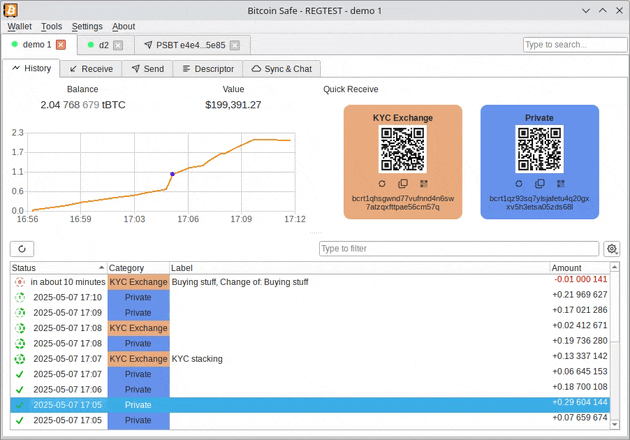
- Speed up transactions with Child Pays For Parent (CPFP).
- BDK 1.2 (upgraded from 0.32).
- Testnet4 support.
- Preconfigured Testnet demo wallets.
- Cluster unconfirmed transactions so that parents/children are next to each other.
- Customizable columns for all tables (optional view: Txid, Address index, and more)
- Bug fixes and other improvements.
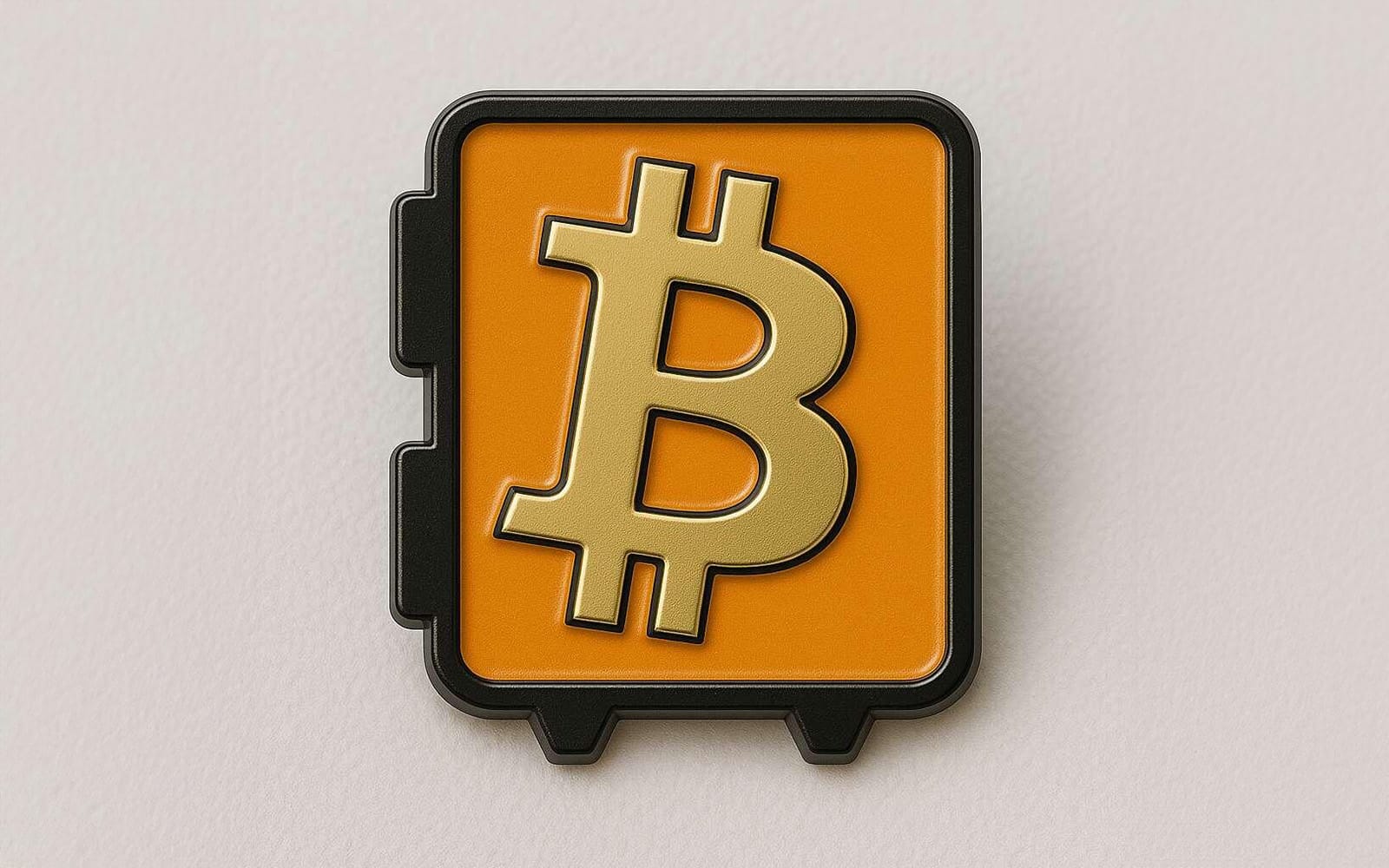
Announcement / Archive
Blog Post / Archive
GitHub Repo
Website -
-
 @ eb0157af:77ab6c55
2025-06-06 09:01:14
@ eb0157af:77ab6c55
2025-06-06 09:01:14The newly elected South Korean President is aiming for a breakthrough in the cryptocurrency market with the introduction of spot ETFs and a national stablecoin.
On June 4, South Korea officially elected Lee Jae-myung as its new President. The candidate from the left-wing party secured victory following the impeachment of former leader Yoon Suk-yeol, who ended his three-year term after a failed attempt to establish a military-backed government.
Voter turnout reached 79.4%, the highest in the last 28 years. Lee won 49.42% of the vote, defeating his conservative opponent Kim Moon-soo, who garnered 41.15%.
The new President’s pledges
In addition to traditional economic priorities such as supporting low-income families and small businesses, Lee Jae-myung has placed digital assets at the heart of his political agenda.
The core pillar of Lee’s strategy involves the introduction of spot ETFs for Bitcoin and Ethereum in the domestic market. Currently, the issuance and local trading of crypto ETFs remain banned in the country.
Another key element of the plan is the approval of stablecoins pegged to the South Korean won. During a discussion last month, Lee emphasized the need to develop a won-based stablecoin market to prevent capital flight abroad.
Under the new administration, South Korea will also work to complete the second phase of its regulatory framework for digital assets. The upcoming legislation will specifically address stablecoin regulations and transparency requirements for cryptocurrency exchanges.
The program also includes the creation of special zones for blockchain-related businesses, where regulations will be minimized to maximize innovation and operational efficiency.
However, this isn’t the first time South Korea has elected a crypto-friendly candidate. The conservative president Yoon Suk-yeol, later impeached, had made several crypto-friendly promises aimed at deregulating the sector, though many of those initiatives saw delays and limited progress during his three-year term.
Yoon’s deregulatory plans faced resistance from the Financial Services Commission (FSC), which maintained strict regulations citing investor protection. In recent months, however, the FSC has shown greater openness toward easing crypto rules — a shift that could support Lee’s commitments.
According to FSC data, by the end of last year the country had 9.7 million registered exchange users, representing nearly 20% of the total population.
The post South Korea: the new leader may favor Bitcoin ETFs and a national stablecoin appeared first on Atlas21.
-
 @ eb0157af:77ab6c55
2025-06-06 09:01:13
@ eb0157af:77ab6c55
2025-06-06 09:01:13A new step for the American bank in the digital asset space: Bitcoin ETFs cleared for use as collateral for financing.
JPMorgan Chase will allow clients to use spot Bitcoin ETFs as collateral to obtain loans. According to sources close to the project, cited by Bloomberg, the initiative will launch in the coming weeks and will involve trading and wealth management clients on a global scale.
The bank has decided to begin this new phase starting with crypto ETFs, beginning with the BlackRock iShares Bitcoin Trust (IBIT), which has already surpassed $70 billion in assets under management (AUM). The decision is part of a broader strategy aimed at enabling selected clients to access financing by using cryptocurrency-related assets as collateral. Before this change, JPMorgan only accepted crypto ETFs as loan collateral under specific conditions.
The American bank’s new approach will see Bitcoin ETFs treated like other traditional assets when calculating a client’s borrowing capacity. Just as is currently the case with stocks, cars, or works of art, crypto ETFs will become an integral part of standard wealth evaluations.
Although CEO Jamie Dimon has historically been known for his skeptical stance on Bitcoin, the bank announced last month that it would soon allow clients to purchase spot ETFs on the leading cryptocurrency — although without offering custody services.
The new rules will apply to all of JPMorgan’s wealth management clients worldwide, from retail customers to high-net-worth individuals. The bank will also integrate crypto holdings into the net worth assessments of clients managed by its wealth management division.
The post JPMorgan Chase: Bitcoin ETFs accepted as loan collateral appeared first on Atlas21.
-
 @ dfa02707:41ca50e3
2025-06-06 01:01:49
@ dfa02707:41ca50e3
2025-06-06 01:01:49Contribute to keep No Bullshit Bitcoin news going.
-
Version 1.3 of Bitcoin Safe introduces a redesigned interactive chart, quick receive feature, updated icons, a mempool preview window, support for Child Pays For Parent (CPFP) and testnet4, preconfigured testnet demo wallets, as well as various bug fixes and improvements.
-
Upcoming updates for Bitcoin Safe include Compact Block Filters.
"Compact Block Filters increase the network privacy dramatically, since you're not asking an electrum server to give you your transactions. They are a little slower than electrum servers. For a savings wallet like Bitcoin Safe this should be OK," writes the project's developer Andreas Griffin.
- Learn more about the current and upcoming features of Bitcoin Safe wallet here.
What's new in v1.3
- Redesign of Chart, Quick Receive, Icons, and Mempool Preview (by @design-rrr).
- Interactive chart. Clicking on it now jumps to transaction, and selected transactions are now highlighted.

- Speed up transactions with Child Pays For Parent (CPFP).
- BDK 1.2 (upgraded from 0.32).
- Testnet4 support.
- Preconfigured Testnet demo wallets.
- Cluster unconfirmed transactions so that parents/children are next to each other.
- Customizable columns for all tables (optional view: Txid, Address index, and more)
- Bug fixes and other improvements.

Announcement / Archive
Blog Post / Archive
GitHub Repo
Website -
-
 @ dfa02707:41ca50e3
2025-06-06 08:02:02
@ dfa02707:41ca50e3
2025-06-06 08:02:02- This version introduces the Soroban P2P network, enabling Dojo to relay transactions to the Bitcoin network and share others' transactions to break the heuristic linking relaying nodes to transaction creators.
- Additionally, Dojo admins can now manage API keys in DMT with labels, status, and expiration, ideal for community Dojo providers like Dojobay. New API endpoints, including "/services" exposing Explorer, Soroban, and Indexer, have been added to aid wallet developers.
- Other maintenance updates include Bitcoin Core, Tor, Fulcrum, Node.js, plus an updated ban-knots script to disconnect inbound Knots nodes.
"I want to thank all the contributors. This again shows the power of true Free Software. I also want to thank everyone who donated to help Dojo development going. I truly appreciate it," said Still Dojo Coder.
What's new
- Soroban P2P network. For MyDojo (Docker setup) users, Soroban will be automatically installed as part of their Dojo. This integration allows Dojo to utilize the Soroban P2P network for various upcoming features and applications.
- PandoTx. PandoTx serves as a transaction transport layer. When your wallet sends a transaction to Dojo, it is relayed to a random Soroban node, which then forwards it to the Bitcoin network. It also enables your Soroban node to receive and relay transactions from others to the Bitcoin network and is designed to disrupt the assumption that a node relaying a transaction is closely linked to the person who initiated it.
- Pushing transactions through Soroban can be deactivated by setting
NODE_PANDOTX_PUSH=offindocker-node.conf. - Processing incoming transactions from Soroban network can be deactivated by setting
NODE_PANDOTX_PROCESS=offindocker-node.conf.
- Pushing transactions through Soroban can be deactivated by setting
- API key management has been introduced to address the growing number of people offering their Dojos to the community. Dojo admins can now access a new API management tab in their DMT, where they can create unlimited API keys, assign labels for easy identification, and set expiration dates for each key. This allows admins to avoid sharing their main API key and instead distribute specific keys to selected parties.
- New API endpoints. Several new API endpoints have been added to help API consumers develop features on Dojo more efficiently:
- New:
/latest-block- returns data about latest block/txout/:txid/:index- returns unspent output data/support/services- returns info about services that Dojo exposes
- Updated:
/tx/:txid- endpoint has been updated to return raw transaction with parameter?rawHex=1
- The new
/support/servicesendpoint replaces the deprecatedexplorerfield in the Dojo pairing payload. Although still present, API consumers should use this endpoint for explorer and other pairing data.
- New:
Other changes
- Updated ban script to disconnect inbound Knots nodes.
- Updated Fulcrum to v1.12.0.
- Regenerate Fulcrum certificate if expired.
- Check if transaction already exists in pushTx.
- Bump BTC-RPC Explorer.
- Bump Tor to v0.4.8.16, bump Snowflake.
- Updated Bitcoin Core to v29.0.
- Removed unnecessary middleware.
- Fixed DB update mechanism, added api_keys table.
- Add an option to use blocksdir config for bitcoin blocks directory.
- Removed deprecated configuration.
- Updated Node.js dependencies.
- Reconfigured container dependencies.
- Fix Snowflake git URL.
- Fix log path for testnet4.
- Use prebuilt addrindexrs binaries.
- Add instructions to migrate blockchain/fulcrum.
- Added pull policies.


Learn how to set up and use your own Bitcoin privacy node with Dojo here.
-
 @ 8bad92c3:ca714aa5
2025-06-06 08:01:56
@ 8bad92c3:ca714aa5
2025-06-06 08:01:56Key Takeaways

Michael Goldstein, aka Bitstein, presents a sweeping philosophical and economic case for going “all in” on Bitcoin, arguing that unlike fiat, which distorts capital formation and fuels short-term thinking, Bitcoin fosters low time preference, meaningful saving, and long-term societal flourishing. At the heart of his thesis is “hodling for good”—a triple-layered idea encompassing permanence, purpose, and the pursuit of higher values like truth, beauty, and legacy. Drawing on thinkers like Aristotle, Hoppe, and Josef Pieper, Goldstein redefines leisure as contemplation, a vital practice in aligning capital with one’s deepest ideals. He urges Bitcoiners to think beyond mere wealth accumulation and consider how their sats can fund enduring institutions, art, and architecture that reflect a moral vision of the future.
Best Quotes
“Let BlackRock buy the houses, and you keep the sats.”
“We're not hodling just for the sake of hodling. There is a purpose to it.”
“Fiat money shortens your time horizon… you can never rest.”
“Savings precedes capital accumulation. You can’t build unless you’ve saved.”
“You're increasing the marginal value of everyone else’s Bitcoin.”
“True leisure is contemplation—the pursuit of the highest good.”
“What is Bitcoin for if not to make the conditions for magnificent acts of creation possible?”
“Bitcoin itself will last forever. Your stack might not. What will outlast your coins?”
“Only a whale can be magnificent.”
“The market will sell you all the crack you want. It’s up to you to demand beauty.”
Conclusion
This episode is a call to reimagine Bitcoin as more than a financial revolution—it’s a blueprint for civilizational renewal. Michael Goldstein reframes hodling as an act of moral stewardship, urging Bitcoiners to lower their time preference, build lasting institutions, and pursue truth, beauty, and legacy—not to escape the world, but to rebuild it on sound foundations.
Timestamps
00:00 - Intro
00:50 - Michael’s BBB presentation Hodl for Good
07:27 - Austrian principles on capital
15:40 - Fiat distorts the economic process
23:34 - Bitkey
24:29 - Hodl for Good triple entendre
29:52 - Bitcoin benefits everyone
39:05 - Unchained
40:14 - Leisure theory of value
52:15 - Heightening life
1:15:48 - Breaking from the chase makes room for magnificence
1:32:32 - Nakamoto Institute’s missionTranscript
(00:00) Fiat money is by its nature a disturbance. If money is being continually produced, especially at an uncertain rate, these uh policies are really just redistribution of wealth. Most are looking for number to go up post hyper bitcoinization. The rate of growth of bitcoin would be more reflective of the growth of the economy as a whole.
(00:23) Ultimately, capital requires knowledge because it requires knowing there is something that you can add to the structures of production to lengthen it in some way that will take time but allow you to have more in the future than you would today. Let Black Rockck buy the houses and you keep the sats, not the other way around.
(00:41) You wait until later for Larry Frink to try to sell you a [Music] mansion. And we're live just like that. Just like that. 3:30 on a Friday, Memorial Day weekend. It's a good good good way to end the week and start the holiday weekend. Yes, sir. Yes, sir. Thank you for having me here. Thank you for coming. I wore this hat specifically because I think it's I think it's very apppropo uh to the conversation we're going to have which is I hope an extension of the presentation you gave at Bitblock Boom Huddle for good. You were working on
(01:24) that for many weeks leading up to uh the conference and explaining how you were structuring it. I think it's a very important topic to discuss now as the Bitcoin price is hitting new all-time highs and people are trying to understand what am I doing with Bitcoin? Like you have you have the different sort of factions within Bitcoin.
(01:47) Uh get on a Bitcoin standard, get on zero, spend as much Bitcoin as possible. You have the sailors of the world are saying buy Bitcoin, never sell, die with your Bitcoin. And I think you do a really good job in that presentation. And I just think your understanding overall of Bitcoin is incredible to put everything into context. It's not either or.
(02:07) It really depends on what you want to accomplish. Yeah, it's definitely there there is no actual one-sizefits-all um for I mean nearly anything in this world. So um yeah, I mean first of all I mean there was it was the first conference talk I had given in maybe five years. I think the one prior to that uh was um bit block boom 2019 which was my meme talk which uh has uh become infamous and notorious.
(02:43) So uh there was also a lot of like high expectations uh you know rockstar dev uh has has treated that you know uh that that talk with a lot of reference. a lot of people have enjoyed it and he was expecting this one to be, you know, the greatest one ever, which is a little bit of a little bit of a uh a burden to live up to those kinds of standards.
(03:08) Um, but you know, because I don't give a lot of talks. Um, you know, I I I like to uh try to bring ideas that might even be ideas that are common. So, something like hodling, we all talk about it constantly. uh but try to bring it from a little bit of a different angle and try to give um a little bit of uh new light to it.
(03:31) I alsove I've I've always enjoyed kind of coming at things from a third angle. Um whenever there's, you know, there's there's all these little debates that we have in in Bitcoin and sometimes it's nice to try to uh step out of it and look at it a little more uh kind of objectively and find ways of understanding it that incorporate the truths of of all of them.
(03:58) uh you know cuz I think we should always be kind of as much as possible after ultimate truth. Um so with this one um yeah I was kind of finding that that sort of golden mean. So uh um yeah and I actually I think about that a lot is uh you know Aristotle has his his concept of the golden mean. So it's like any any virtue is sort of between two vices um because you can you can always you can always take something too far.
(04:27) So you're you're always trying to find that right balance. Um so someone who is uh courageous you know uh one of the vices uh on one side is being basically reckless. I I can't remember what word he would use. Uh but effectively being reckless and just wanting to put yourself in danger for no other reason than just you know the thrill of it.
(04:50) Um and then on the other side you would just have cowardice which is like you're unwilling to put yourself um at any risk at any time. Um, and courage is right there in the middle where it's understanding when is the right time uh to put your put yourself, you know, in in the face of danger um and take it on. And so um in some sense this this was kind of me uh in in some ways like I'm obviously a partisan of hodling.
(05:20) Um, I've for, you know, a long time now talked about the, um, why huddling is good, why people do it, why we should expect it. Um, but still trying to find that that sort of golden mean of like yes, huddle, but also what are we hodling for? And it's not we're we're not hodddling just merely for the sake of hodddling.
(05:45) There there is a a purpose to it. And we should think about that. And that would also help us think more about um what are the benefits of of spending, when should we spend, why should we spend, what should we spend on um to actually give light to that sort of side of the debate. Um so that was that was what I was kind of trying to trying to get into.
(06:09) Um, as well as also just uh at the same time despite all the talk of hodling, there's always this perennial uh there's always this perennial dislike of hodlers because we're treated as uh as if um we're just free riding the network or we're just greedy or you know any of these things. And I wanted to show how uh huddling does serve a real economic purpose.
(06:36) Um, and it does benefit the individual, but it also does uh it it has actual real social um benefits as well beyond merely the individual. Um, so I wanted to give that sort of defense of hodling as well to look at it from um a a broader position than just merely I'm trying to get rich. Um uh because even the person who uh that is all they want to do um just like you know your your pure number grow up go up moonboy even that behavior has positive ramifications on on the economy.
(07:14) And while we might look at them and have uh judgments about their particular choices for them as an individual, we shouldn't discount that uh their actions are having positive positive effects for the rest of the economy. Yeah. So, let's dive into that just not even in the context of Bitcoin because I think you did a great job of this in the presentation.
(07:36) just you've done a good job of this consistently throughout the years that I've known you. Just from like a first principles Austrian economics perspective, what is the idea around capital accumulation, low time preference and deployment of that capital like what what like getting getting into like the nitty-gritty and then applying it to Bitcoin? Yeah, it's it's a big question and um in many ways I mean I I even I barely scratched the surface.
(08:05) uh I I can't claim to have read uh all the volumes of Bombber works, you know, capital and interest and and stuff like that. Um but I think there's some some sort of basic concepts that we can look at that we can uh draw a lot out. Um the first uh I guess let's write that. So repeat so like capital time preference. Yeah. Well, I guess getting more broad like why sav -
 @ b1ddb4d7:471244e7
2025-06-06 08:01:27
@ b1ddb4d7:471244e7
2025-06-06 08:01:27When Sergei talks about bitcoin, he doesn’t sound like someone chasing profits or followers. He sounds like someone about to build a monastery in the ruins.
While the mainstream world chases headlines and hype, Sergei shows up in local meetups from Sacramento to Cleveland, mentors curious minds, and shares what he knows is true – hoping that, with the right spark, someone will light their own way forward.
We interviewed Sergei to trace his steps: where he started, what keeps him going, and why teaching bitcoin is far more than explaining how to set up a node – it’s about reaching the right minds before the noise consumes them. So we began where most journeys start: at the beginning.

First Steps
- So, where did it all begin for you and what made you stay curious?
I first heard about bitcoin from a friend’s book recommendation, American Kingpin, the book about Silk Road (online drug marketplace). He is still not a true bitcoiner, although I helped him secure private keys with some bitcoin.
I was really busy at the time – focused on my school curriculum, running a 7-bedroom Airbnb, and working for a standardized test prep company. Bitcoin seemed too technical for me to explore, and the pace of my work left no time for it.
After graduating, while pursuing more training, I started playing around with stocks and maximizing my savings. Passive income seemed like the path to early retirement, as per the promise of the FIRE movement (Financial Independence, Retire Early). I mostly followed the mainstream news and my mentor’s advice – he liked preferred stocks at the time.
I had some Coinbase IOUs and remember sending bitcoin within the Coinbase ledger to a couple friends. I also recall the 2018 crash; I actually saw the legendary price spike live but couldn’t benefit because my funds were stuck amidst the frenzy. I withdrew from that investment completely for some time. Thankfully, my mentor advised to keep en eye on bitcoin.
Around late 2019, I started DCA-ing cautiously. Additionally, my friend and I were discussing famous billionaires, and how there was no curriculum for becoming a billionaire. So, I typed “billionaires” into my podcast app, and landed on We Study Billionaires podcast.
That’s where I kept hearing Preston Pysh mention bitcoin, before splitting into his own podcast series, Bitcoin Fundamentals. I didn’t understand most of the terminology of stocks, bonds, etc, yet I kept listening and trying to absorb it thru repetition. Today, I realize all that financial talk was mostly noise.
When people ask me for a technical explanation of fiat, I say: it’s all made up, just like the fiat price of bitcoin! Starting in 2020, during the so-called pandemic, I dove deeper. I religiously read Bitcoin Magazine, scrolled thru Bitcoin Twitter, and joined Simply Bitcoin Telegram group back when DarthCoin was an admin.
DarthCoin was my favorite bitcoiner – experienced, knowledgeable, and unapologetic. Watching him shift from rage to kindness, from passion to despair, gave me a glimpse at what a true educator’s journey would look like.
The struggle isn’t about adoption at scale anymore. It’s about reaching the few who are willing to study, take risks, and stay out of fiat traps. The vast majority won’t follow that example – not yet at least… if I start telling others the requirements for true freedom and prosperity, they would certainly say “Hell no!”
- At what point did you start teaching others, and why?
After college, I helped teach at a standardized test preparation company, and mentored some students one-on-one. I even tried working at a kindergarten briefly, but left quickly; Babysitting is not teaching.
What I discovered is that those who will succeed don’t really need my help – they would succeed with or without me, because they already have the inner drive.
Once you realize your people are perishing for lack of knowledge, the only rational thing to do is help raise their level of knowledge and understanding. That’s the Great Work.
I sometimes imagine myself as a political prisoner. If that were to happen, I’d probably start teaching fellow prisoners, doctors, janitors, even guards. In a way we already live in an open-air prison, So what else is there to do but teach, organize, and conspire to dismantle the Matrix?
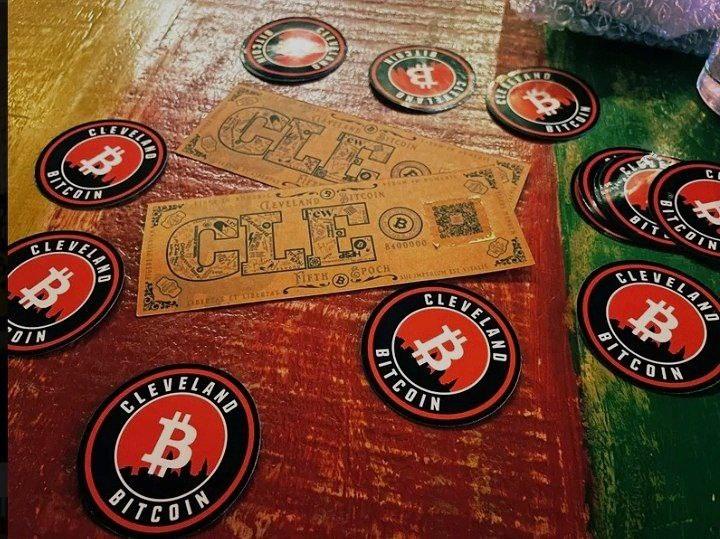
Building on Bitcoin
- You hosted some in-person meetups in Sacramento. What did you learn from those?
My first presentation was on MultiSig storage with SeedSigner, and submarine swaps through Boltz.exchange.
I realized quickly that I had overestimated the group’s technical background. Even the meetup organizer, a financial advisor, asked, “How is anyone supposed to follow these steps?” I responded that reading was required… He decided that Unchained is an easier way.
At a crypto meetup, I gave a much simpler talk, outlining how bitcoin will save the world, based on a DarthCoin’s guide. Only one person stuck around to ask questions – a man who seemed a little out there, and did not really seem to get the message beyond the strength of cryptographic security of bitcoin.
Again, I overestimated the audience’s readiness. That forced me to rethink my strategy. People are extremely early and reluctant to study.
- Now in Ohio, you hold sessions via the Orange Pill App. What’s changed?
My new motto is: educate the educators. The corollary is: don’t orange-pill stupid normies (as DarthCoin puts it).
I’ve shifted to small, technical sessions in order to raise a few solid guardians of this esoteric knowledge who really get it and can carry it forward.
The youngest attendee at one of my sessions is a newborn baby – he mostly sleeps, but maybe he still absorbs some of the educational vibes.
- How do local groups like Sactown and Cleveland Bitcoiners influence your work?
Every meetup reflects its local culture. Sacramento and Bay Area Bitcoiners, for example, do camping trips – once we camped through a desert storm, shielding our burgers from sand while others went to shoot guns.
Cleveland Bitcoiners are different. They amass large gatherings. They recently threw a 100k party. They do a bit more community outreach. Some are curious about the esoteric topics such as jurisdiction, spirituality, and healthful living.
I have no permanent allegiance to any state, race, or group. I go where I can teach and learn. I anticipate that in my next phase, I’ll meet Bitcoiners so advanced that I’ll have to give up my fiat job and focus full-time on serious projects where real health and wealth are on the line.
Hopefully, I’ll be ready. I believe the universe always challenges you exactly to your limit – no less, no more.
- What do people struggle with the most when it comes to technical education?
The biggest struggle isn’t technical – it’s a lack of deep curiosity. People ask “how” and “what” – how do I set up a node, what should one do with the lightning channels? But very few ask “why?”
Why does on-chain bitcoin not contribute to the circular economy? Why is it essential to run Lightning? Why did humanity fall into mental enslavement in the first place?
I’d rather teach two-year-olds who constantly ask “why” than adults who ask how to flip a profit. What worries me most is that most two-year-olds will grow up asking state-funded AI bots for answers and live according to its recommendations.
- One Cleveland Bitcoiner shows up at gold bug meetups. How valuable is face-to-face education?
I don’t think the older generation is going to reverse the current human condition. Most of them have been under mind control for too long, and they just don’t have the attention span to study and change their ways.
They’re better off stacking gold and helping fund their grandkids’ education. If I were to focus on a demographic, I’d go for teenagers – high school age – because by college, the indoctrination is usually too strong, and they’re chasing fiat mastery.
As for the gold bug meetup? Perhaps one day I will show up with a ukulele to sing some bitcoin-themed songs. Seniors love such entertainment.
- How do you choose what to focus on in your sessions, especially for different types of learners?
I don’t come in with a rigid agenda. I’ve collected a massive library of resources over the years and never stopped reading. My browser tab and folder count are exploding.
At the meetup, people share questions or topics they’re curious about, then I take that home, do my homework, and bring back a session based on those themes. I give them the key takeaways, plus where to dive deeper.
Most people won’t – or can’t – study the way I do, and I expect attendees to put in the work. I suspect that it’s more important to reach those who want to learn but don’t know how, the so-called nescient (not knowing), rather than the ignorant.
There are way too many ignorant bitcoiners, so my mission is to find those who are curious what’s beyond the facade of fake reality and superficial promises.
That naturally means that fewer people show up, and that’s fine. I’m not here for the crowds; I’m here to educate the educators. One bitcoiner who came decided to branch off into self-custody sessions and that’s awesome. Personally, I’m much more focused on Lightning.
I want to see broader adoption of tools like auth, sign-message, NWC, and LSPs. Next month, I’m going deep into eCash solutions, because let’s face it – most newcomers won’t be able to afford their own UTXO or open a lightning channel; additionally, it has to be fun and easy for them to transact sats, otherwise they won’t do it. Additionally, they’ll need to rely on




